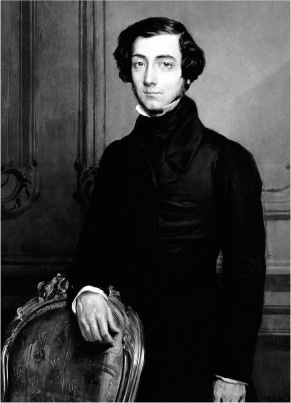America in the 1850s1850 |
How much credence can we give to de Tocqueville on this and other observations? |
Like any observer, de Tocqueville was mistaken on some things; unlike most observers, he was a careful witness of all that he saw. Literally thousands of American historians, philosophers, and sociologists have spent extended time with his writing, and they have, perhaps, required millions of their students to do the same. And so, while we would not wish to accept everything de Tocqueville says without considering it for ourselves, the balance inclines us to favor many of his observations.
What de Tocqueville meant was that conditions in American society allowed far greater freedom to the young man than to his counterparts in Europe. The reason can be quickly found: the availability of cheap land. Given that, the twenty-year-old man could quickly establish a new homestead and start a new family. Exceptions to the rule always exist, however, and we will soon see how the many sons of John Brown remained deeply loyal—almost to an extreme—long after they had passed the boundary into maturity.

Alexis de Tocqueville (1805–1859) was a French historian, political thinker, and author of Democracy in America.
